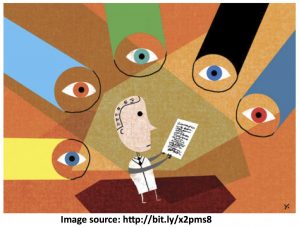Final Reflections
This technical writing course, ENGL 301, began as an elective course but has been extremely enjoyable and informative, allowing me to develop many different writing skills. By working independently and in collaboration with Dr. Paterson or my writing team, Wise Words, I have prepared proposals, reports, formal correspondence, and online communications – necessities for the professional world. This final reflection will discuss the strengths and weaknesses of my writings and learning process, as well as highlight my future goals.
My strengths
 Of all of the assignments completed over this course, writing the formal report was the most comfortable as the formal tone utilized in this assignment was required in my previous writing experience. By focusing primarily on conveying information concisely, writing with a formal tone has become one of my strengths. Writing with this style is useful when preparing documents required as a biology student or in the research placement I am applying to.
Of all of the assignments completed over this course, writing the formal report was the most comfortable as the formal tone utilized in this assignment was required in my previous writing experience. By focusing primarily on conveying information concisely, writing with a formal tone has become one of my strengths. Writing with this style is useful when preparing documents required as a biology student or in the research placement I am applying to.
Another strength that I have developed is self and peer revision. Thinking critically about the work produced by my Wise Words teammates has progressed my ability to provide constructive feedback to both my peers and myself. Being able to objectively review written work is critical within both professional and everyday life.
My Weaknesses
Collaboration with my peers and instructor over this course helped to highlight my weaknesses in my professional writing. Creating a relationship with the reader and writing with a ‘You-Attitude’ was particularly challenging when completing these assignments. Both of these styles were very new to me and required me to always be aware of my tone. This increased the completion time of each assignment as I became more aware of each sentence that I wrote.
Future Goals
The skills that I have learned through this technical writing course will be transferable to all aspects of my life; both professional and everyday. Whether it be applications to research placements, applications to graduate school, communications with my coach, or emails to professors, my writing will be stronger and more professional. This will help me to acquire the necessary information or documents much quicker.
In addition to improved writing skills, the completion of this course has provided me with a complete application package, webfolio, and LinkedIn profile. As I enter into my final year of studies, these documents will be very useful as I begin to search for employment opportunities. I’m excited to continue to apply what I have learned in this class into my professional life and future career.
